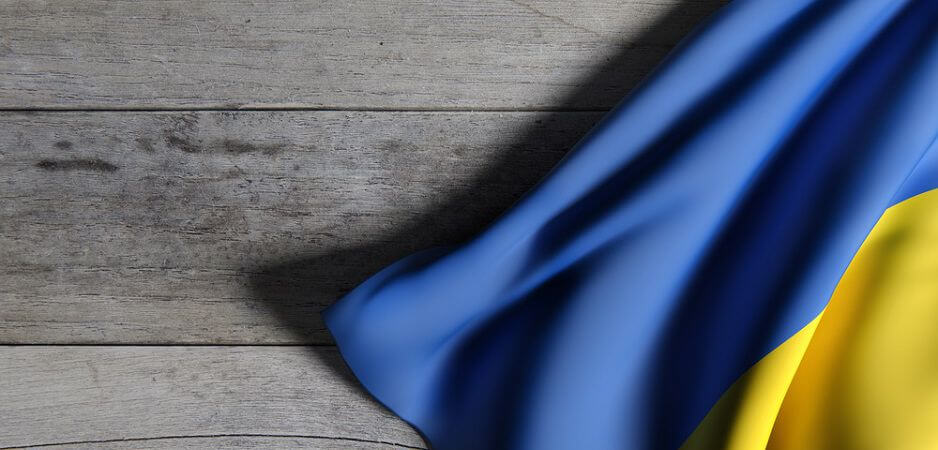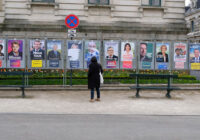In some circumstances, Ukrainian membership of the EU could benefit Russia, but no one in Moscow sees it that way.
Control over Ukraine’s fertile land and natural resources has been a source of conflict throughout modern history. The Russian occupation of Crimea, which is part of the sovereign territory of Ukraine, is the first forcible alteration of an international boundary in Europe since the end of World War II. In eastern Ukraine, the conflict between Russian-backed militias and the Ukrainian government led to the shooting down by militants of a passenger airliner full of Dutch holidaymakers heading to the Far East.
Ukraine is a democracy, but it is afflicted by corruption and the constant tension between its president and its legislature under its US-style constitution. The country looks to the European Union for salvation, but the EU is turning inward and giving priority to other problems.
In an attempt to understand the challenge, I read The Gates of Europe by Serhii Plokhy. It explores the history of Ukraine from the earliest times, and Plokhy is a professor of history at Harvard.
At the outset of the First World War, Ukraine was divided between the Russian and Austro-Hungarian Empires. The Russian Orthodox Church and the Greek Catholic Church — which is in communion with Rome but following eastern rite — are active in Ukraine, and religious divisions have been a source of conflict in the past.
Both Russian and Ukrainian languages are spoken in the country, with Russian more in the cities and in the east. The Ukrainian language is now promoted as a badge of national identity, as Irish is in Ireland. Thanks to immigration from Russia, the country is ethnically diverse. But partly because of high-handed Russian actions, even ethnic Russians in Ukraine increasingly identify themselves as Ukrainian.
Plokhy traces the cultural and political influences that shaped the country in the past two millennia. Ukraine was on the frontiers of the Roman Empire. It came under the influence of Greeks of the Byzantine Empire from Constantinople, who introduced Christianity to the area in 989 AD. It was from Ukraine that Christianity was introduced to Russia, which partly explains the Russian view that Ukraine should not be separate from Mother Russia.
In 1240, Kiev fell to the Mongols, who ruled the area for 100 years. The Mongols were defeated in 1359 and Ukraine became part of the Grand Duchy of Lithuania, which was dominated by Poles and Lithuanians. The Grand Duchy’s Catholic religious policy was resented by Orthodox Ukrainians.
From 1590 to 1646, a series of risings by Cossacks (armed bands of native Ukrainians) weakened the Grand Duchy and oriented Ukraine toward Moscow and the Orthodox Church. The autonomy enjoyed by the Cossacks within the Russian Empire was ended by Catherine the Great in the 1770s, and that fueled resentment.
Plokhy describes the tragedy of the First World War, when Ukrainians fought on both sides. At the end of the conflict, and during the Russian Civil War, Ukraine briefly became an independent state. That independence was ended by the victory of the Bolsheviks in the civil war.
The author shows how the Jews, who were numerous in Ukraine, became scapegoats. Under Joseph Stalin in the 1930s, the country suffered a terrible famine because communist determination diverted food supplies into the cities to help industrial expansion.
During the Second World War, which was fought over the territory of Ukraine, nationalists in that country took up arms for the independence of their own nation, against both the Nazis and the Soviets. The pro-independence movement fighting the Soviets continued well into the 1950s, but without any aid from the West.
Ukraine did comparatively well when Stalin’s successor, Nikita Khrushchev, and his protégé, Leonid Brezhnev, were in charge of the Soviet Union. Under Mikhail Gorbachev, things got worse for Ukraine, especially in the aftermath of the Chernobyl nuclear disaster, which affected 3 million people in the country and where the risks to the population were partially covered up by the regime.
While it was the Baltic states and the Russian Federation — led by Boris Yeltsin — that precipitated the breakup of the Soviet Union, Ukraine took full advantage of it and declared itself independent in 1991. Interestingly, the United States favored independence for the Baltic states but opposed it for Ukraine at that time. President George H.W. Bush foresaw the effect Ukrainian independence would have on Russian opinion.
As an independent country, Ukraine shared the economic collapse in most post-Soviet states caused by the stress of adjusting from a communist system to a market economy. Unlike Russia, Ukraine does not have vast natural gas reserves but, also unlike Russia, it has remained a democracy.
This is an important book because it deals with a country that could become a source of conflict between EU members and the Russian Federation in the foreseeable future. Moscow feels that Ukraine should be part of its “sphere of influence,” but Brussels rejects the notion of “spheres of influence.” Many in the union believe Ukraine could eventually be eligible to become an EU member — something that most Ukrainians would like but the Russians would hate.
In some circumstances, Ukrainian membership of the EU could benefit Russia, but no one in Moscow sees it that way — at least not yet.
The views expressed in this article are the author’s own and do not necessarily reflect Fair Observer’s editorial policy.
Photo Credit: Enrique Ramos / Shutterstock.com
Support Fair Observer
We rely on your support for our independence, diversity and quality.
For more than 10 years, Fair Observer has been free, fair and independent. No billionaire owns us, no advertisers control us. We are a reader-supported nonprofit. Unlike many other publications, we keep our content free for readers regardless of where they live or whether they can afford to pay. We have no paywalls and no ads.
In the post-truth era of fake news, echo chambers and filter bubbles, we publish a plurality of perspectives from around the world. Anyone can publish with us, but everyone goes through a rigorous editorial process. So, you get fact-checked, well-reasoned content instead of noise.
We publish 2,500+ voices from 90+ countries. We also conduct education and training programs
on subjects ranging from digital media and journalism to writing and critical thinking. This
doesn’t come cheap. Servers, editors, trainers and web developers cost
money.
Please consider supporting us on a regular basis as a recurring donor or a
sustaining member.
Will you support FO’s journalism?
We rely on your support for our independence, diversity and quality.






